The pearl of the Gulf of Guinea, the country with double digit growth for women. And with the local associations and the work authority ActionAid, the international NGO that in Italy found one of the most fertile grounds to grow (and accumulate funds)
by Lorenzo Robustelli
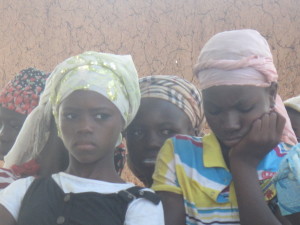
Like the NGO ActionAid, the EC bets on Ghana and in particular on the campaign against hunger, a battle that seems, on land, to be imposed well and with great results. “We won’t accept hunger: mobilizing Europeans on MDG 1 and the right to Food” is the name of the campaign (the acronym stands for Objective for Development in the 21st century is Number 1, that is to cut poverty in ½ by 2015) that Brussels decided to finance to “increase the awareness of European citizens.”
This meeting between NGO’s and institutions brought Italian journalist on their first trip to Ghana; 7 days of full immersion to discover how to help grow a country still victim of hunger, of exploitation and of mistreatment of people. What is obvious immediately is the new role of women, promoted by authorities, associations, but requested with force also by them, even by those who don’t know how to write yet but entered the democratic logic of participation.
The trip begins with an ActionAid program: the battle against condemnation for witchcraft. In the village of Gnani a successful project is realized, a campaign to defend the women called “witches” based on popular ancestral beliefs, which more and more appear to be tied to economic interests but traditionally was based only on the pretext to ostracize women and a few men. There are six “ghetto” camps throughout North East Ghana where almost 600 women and a handful of “witches” were banished by their family, being accused of having hurt and wanting to inflict more pain. There is also a process, an ancient and horrible ritual: the woman accused of witchcraft is forced to go to a village of “witches” and there a “holy man” kills a chicken and lets it fall to the ground; if the head looks up the woman is condemned, otherwise she is saved. But it is a deliverance that by then
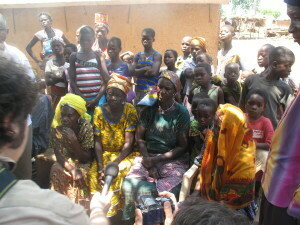
many refuse. Fanli has been there for about 15 years and the “process” found her innocent, “but I didn’t want to return – she explains – and I preferred to stay here.” Her relationship with her community was broken and she, weapons and (few) bags, moved with the other condemned, who live with a handful of young boys and girls sent from villages to help in daily life. Other young ones condemned for life. Fanli took her small business of firewood with her. Also Waapo was found innocent but didn’t want to go back “they would accuse me of anything that would go wrong.”
Why are the “witches” often nothing more than women who gained their own independence and a tiny bit of economic power? And men don’t go for this; it breaks century old balances and power systems. At times even the opposite is true: there are women who remain alone, without income and they can become a problem for the community. Therefore at the first death where someone sees fit, the “witch” is accused of being the cause. Often it is based on husbands or in-laws. But the country is growing; ActionAid and other specialized associations like the Red Cross (which operates on women with cataracts, accused of being witches because “they ate their eyes”) help these people and slowly the phenomenon is disappearing.
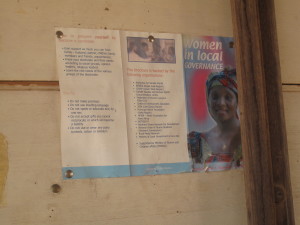
There were about 2,800 witches surveyed 5 years ago; now there are 567 and last year the NGO was able to reaccept 36 into their original community. It is not as easy as it seems though. Even an averagely educated person (for our dogmas, but of elevated instruction for Ghanaian measures) still believes in witchcraft: “yes, I believe, like everyone, even if only here in the North, the poorest area of the country, this phenomenon of isolation exists,” explains Francis, a local accountant for ActionAid. Fortunately however, “the government is against this practice – explains Esther, the NGO Program Director – and we are working together.” Then she confirms that “women accused often are those who are outside the traditional framework. Additionally there are poor widows, who nobody wants to have to take care of.” It is because of Ester’s work that we found a common thread on this trip: “We work mainly on women’s rights, at every level.”
I /

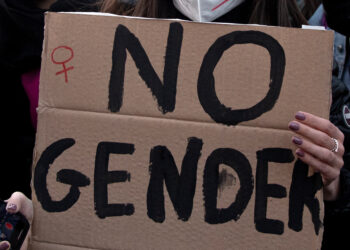
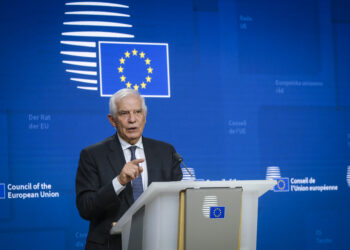
![Aerei Saab [foto: imagoeconomica]](https://staging.eunews.it/wp-content/uploads/2024/11/Imagoeconomica_2292144-350x250.jpg)




